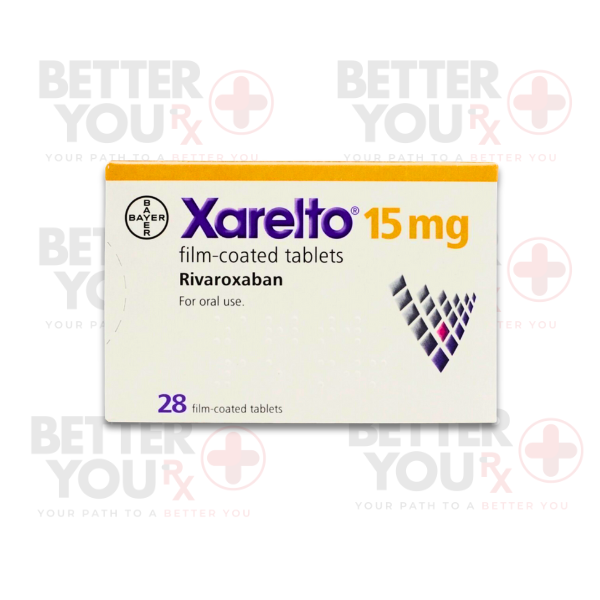| Usage |
Usage
Brexpiprazole is available in tablet form for oral consumption. Typically, it is taken once daily, and it's essential to maintain a consistent schedule by taking it at roughly the same time every day. To ensure proper usage, carefully adhere to the instructions provided on your prescription label, and don't hesitate to seek clarification from your doctor or pharmacist regarding any unclear aspects. It is crucial to take brexpiprazole precisely as directed, refraining from altering the dosage—neither increasing nor decreasing it—unless instructed otherwise by your physician.
Your doctor may initially prescribe a lower dose of brexpiprazole and then adjust it based on its effectiveness in managing your condition and the presence of any side effects. While brexpiprazole can help control schizophrenia and depression, it does not serve as a cure for these conditions. Therefore, it is imperative to maintain your brexpiprazole regimen even if you begin to feel better and refrain from discontinuing its use without consulting your doctor.
|
| Side Effects |
Side Effects
Brexpiprazole may lead to certain side effects. Should you experience any of the following symptoms, whether they are severe or persistent, it is essential to inform your doctor:
• Headache
• Constipation
• Heartburn
• Fatigue
• Uncontrollable trembling or shaking of a specific part of your body
• Dizziness, a sensation of unsteadiness, or difficulties maintaining balance
Some side effects can be more serious. If you encounter any of these symptoms, or those listed in the IMPORTANT WARNINGS and SPECIAL PRECAUTIONS sections, it is crucial to contact your doctor promptly:
• Skin rash
• Hives
• Itching
• Enlargement or puffiness of the eyes, facial area, oral cavity, lips, tongue, throat, hands, feet, ankles, or lower limbs.
• Difficulty breathing or swallowing
• Seizures
• Shortness of breath
• Sore throat, cough, chills, or any other indications of infection
• Fever, profuse sweating, confusion, rapid or irregular heartbeat, and severe muscle stiffness
• Unusual, involuntary movements of your face or body that you cannot control
• Falling
• Constriction of the neck muscles
• Throat tightness
Brexpiprazole may also be associated with other side effects. In the event of any unusual issues or concerns arising while taking this medication, do not hesitate to contact your doctor for guidance and further evaluation.
|
| Storage |
Storage
To ensure the safekeeping of this medication:
• Store it in the original container, tightly sealed, and away from children.
• Keep it at room temperature, avoiding excessive heat and moisture, such as in the bathroom.
• Properly dispose of any unneeded medication to prevent unintentional consumption by pets, children, or others.
• Do not flush the medication down the toilet; instead, consider a medicine take-back program, or consult your local garbage or recycling department for guidance.
• Be vigilant in securing all medications, as some containers are not child-resistant, and young children may access them easily. Utilize safety caps and store medications out of their reach and sight.
|
| Precaution |
Precaution
Before using brexpiprazole, it's essential to:
• Inform your doctor and pharmacist about any allergies to brexpiprazole, other medications, or ingredients in brexpiprazole tablets. Ask your pharmacist for a roster of components.
• Disclose all prescription and non-prescription medications, vitamins, and nutritional supplements you are taking, including antidepressants like duloxetine, fluoxetine, and paroxetine, certain antifungal medications, clarithromycin, blood pressure medications, quinidine, and rifampin. Your physician might have to modify your medication dosages or keep an eye on you for potential side effects. Additionally, mention any herbal products, especially St. John's wort.
• Share your medical history, including any family history of diabetes, past or current conditions such as stroke, ministroke (TIA), chest pain, heart disease, irregular heartbeat, heart attack, balance issues, swallowing difficulties, high or low blood pressure, seizures, high cholesterol and triglyceride levels, low white blood cell count, or kidney and liver disease. Also, inform your doctor if you experience severe vomiting, diarrhea, dehydration signs, or develop these symptoms during treatment.
• Notify your doctor if you are pregnant, especially during the later stages of pregnancy, or if you plan to become pregnant or are breastfeeding. Brexpiprazole may pose risks to newborns if taken in late pregnancy.
• Be cautious, as brexpiprazole may cause drowsiness. Avoid driving or operating machinery until you understand how this medication affects you.
• Be aware of the potential for hyperglycemia (elevated blood sugar) even if you don't have diabetes. Inform your doctor immediately if you experience extreme thirst, frequent urination, excessive hunger, blurred vision, or weakness. High blood sugar can lead to a severe condition called ketoacidosis, which requires prompt medical attention.
• Take precautions when rising quickly from a lying position, as brexpiprazole can cause dizziness, lightheadedness, or fainting, especially when starting the medication. Take a seat on the edge of the bed for a few minutes before attempting to stand up.
• Understand that brexpiprazole may affect your body's ability to regulate temperature in extreme heat or during exercise. Inform your doctor if you plan to engage in such activities.
• Monitor your weight regularly while taking brexpiprazole, as it may lead to weight gain.
|
| Warning |
Warnings
Important warnings for individuals taking brexpiprazole include:
1. Older Adults with Dementia: Studies have shown that older adults with dementia who take antipsychotic medications like brexpiprazole have an increased risk of death during treatment. They may also be more likely to experience a stroke or ministroke while taking antipsychotics.
2. Warning for Depression Treatment in Young People: In some cases, children, teenagers, and young adults (up to 24 years old) taking antidepressant medications during clinical studies have experienced suicidal thoughts or behaviors. This risk appears to be higher among individuals taking antidepressants for depression or other mental illnesses compared to those who do not. The extent of this risk is still uncertain, and doctors need to carefully consider it when prescribing antidepressants to young people.
3. Monitoring for Mental Health Changes: Regardless of age, individuals taking brexpiprazole or other antidepressants should be aware that their mental health could change unexpectedly during treatment, especially at the start or when adjusting the dose. It's crucial to seek immediate medical attention if you, your family, or your caregiver notice symptoms such as worsening depression, increased anxiety, thoughts of self-harm or suicide, extreme worry, agitation, panic attacks, sleep disturbances, aggressive behavior, irritability, impulsive actions, severe restlessness, or manic episodes characterized by frenzied and overly excited moods.
4. Communication with Your Healthcare Provider: It's important to maintain open communication with your doctor about the potential risks and benefits of taking brexpiprazole, especially if you fall into any of the mentioned categories or experience any concerning symptoms. Your doctor can help determine the most appropriate course of treatment and monitor your progress closely.
|










